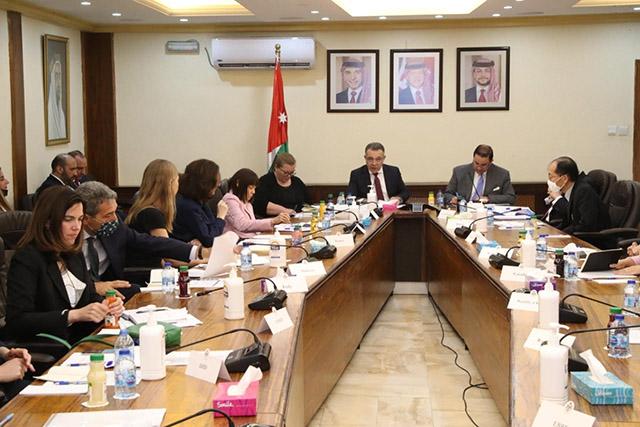- Local News
- Friday-2020-07-03 | 02:39 pm

The meeting saw the participation of Jordan’s international partners and organisations. Attendants were acquainted with the Kingdom’s achievements related to implementing five-year reforms, reform priorities for next year and financial and economic challenges in light of the COVID-19 pandemic, according to a ministry statement.
The meeting also went over developments related to the macro economy and the Kingdom’s monetary status under the pandemic, as well as the most important reforms that have been implemented over the past 12 months and those still being implemented.
According to Rabadi, this periodic meeting aims at enhancing coordination with international partners towards supporting the reform and growth process under the London initiative, which was launched last year with the support of the UK government.
The minister said that the government reviewed 116 economic and financial procedures that have been executed as part of the 2018-2022 reform matrix, in addition to 112 procedures that are under implementation.
He also renewed the government’s commitment to implementing the five-year reform matrix and comprehensive structural and financial reforms to stimulate growth rates and create jobs, stressing that the meeting was held under "difficult circumstances” that have affected all countries at the social, economic and financial levels.
For his part, Mark Bryson-Richardson, Director of the Middle East and North Africa at the UK Department for International Development (DFID), lauded the government’s adherence to implementing the five-year reform matrix, despite the repercussions of the COVID-19 pandemic.
Finance Minister Mohamad Al-Ississ reviewed the latest financial developments related to endorsing the 2020 general budget and its contents related to procedures that support the economy, in addition to other programmes that are agreed upon with the International Monetary Fund.
Al-Ississ stressed that the government will continue adopting an approach that is envisioned to enhance local revenues and distribute the tax burden in a more just way through curbing tax and customs evasion at a time when the government has pledged to not impose any new taxes or increase existing ones.









